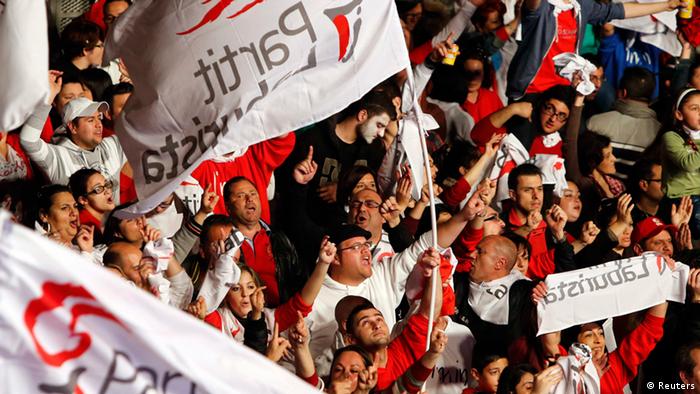Voters in Malta have gone to the polls in a vote that pits the incumbent center-right against the opposition Labor Party. The European Union's smallest state enjoys relative economic success, but there is discontent.
Maltese voters began to cast their ballots on Saturday in a general election in which the opposition Labor Party is being viewed as the front runner.
Although Malta boasts the EU's lowest unemployment rate of 4.3 percent - and is viewed as having relatively solid public finances - pre-election polling has strongly indicated a change of government.
According to opinion polls, Labor has a lead of about 11 percent over the Nationalist Party, which has been in power for the past 15 years.
Labor leader Joseph Muscat has accused his rival, Prime Minister Lawrence Gonzi, of failing to achieve stability, governing with a majority of just one seat.
Anger over prices
The election came a few months earlier than planned for the government, brought after a single government delegate voted against the Nationalists' proposed budget in November.
While Malta has bucked the overall economic trend in the Mediterranean, having strong and solid public finances, Labor has exploited public anger at high energy prices, politicians' salaries and an oil corruption scandal.
Muscat has promised to lower energy rates and put an end to what he describes as Malta's "tribal politics." However, his rival Gonzi has warned voters, especially the young, against "change for the sake of it."
Some 330,000 Maltese are eligible to vote with results expected by Sunday afternoon. Malta is the EU's smallest member state in terms of both population, with 405,000 people, and geographical area.
rc/slk (AP, AFP, dpa


No comments:
Post a Comment